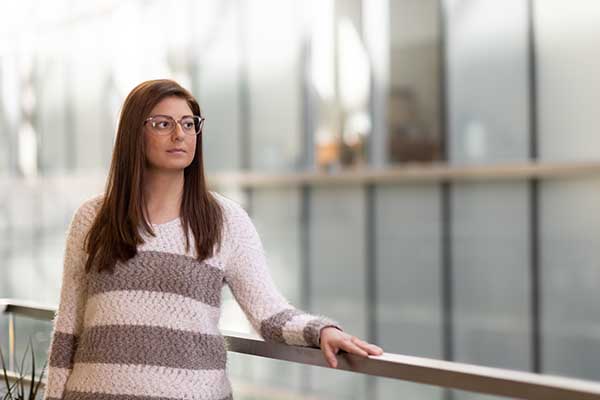
Counseling professor Dania Fakhro remembers her neighbors in Syria wearing the keys to the homes they had been forced to flee around their necks. They were people displaced by conflict with roots common to the ongoing Israel-Hamas war that today leaves buildings in rubble and thousands dead. Born and raised in Syria, Fakhro witnessed refugees from the region arrive in her home country in droves seeking safety as gunshots and explosions echoed in the streets of their own many miles away. The keys they wore served as symbols of loss and hope.
“Even then I asked myself ‘What is it like to be in a different place while keeping all the memories from your country at the same time you're just trying to live and be active in your new society?’” she said. “It really affected me to hear the stories: people witnessing the torture of family members and many other traumas. It was so much at first. There was a part of me that wanted to be the helper. At the same time, I was as confused as they were.”
Leaving home
Armed conflict arrived on Fakhro’s doorstep in 2011 when years of unrest in Syria cascaded into civil war as uprisings materialized across the Middle East in what came to be known as the Arab Spring.
“I became a refugee myself, and I witnessed many of the things that I heard about. I lost close family members and friends. I remembered all the stories that I heard before. And I found it even more complicated than I had thought,” she said.
Fakhro was forced to search for a new home. With nowhere to go, she sought safety in countries across the world, struggling to find a place to settle and finally moving to the United States in 2015.
Clearing new paths
After arriving in the United States equipped with knowledge gained from her personal experiences and a blooming passion for helping others, Fakhro completed a master's degree in clinical mental health counseling from Rollins College 2020 and went on to earn a Ph.D. in counselor education and supervision from the University of Central Florida.
She moved to Charlotte in August to join the UNC Charlotte Department of Counseling and is seeking connections with individuals, nonprofit organizations and providers across the city.
Throughout her time working with refugees and counselors, Fakhro has observed a disconnect that often emerges from a combination of refugees’ high levels of complex trauma and their experiences with political oppression. She recalls hearing counselors label refugees as "resistant" or “uncooperative.” But she knew there was more to the story.
“In American culture, therapists will often ask their clients something like: ‘How do you feel?’ Refugees can be suspicious of even this and it can be met with silence or superficial answers,” Fakhro said. “Where people are coming from, you might be killed for just saying your opinions. They want to know who you are as a counselor first. They want to know that you are not saying what they are saying to the government, and they won’t be persecuted.”
Rather than double-down on therapeutic approaches that aren’t connecting or simply concluding a person is unreachable, Fakhro encourages mental health professionals to focus on establishing trust and exploring strategies tailored to the population.
Read the entire story on the Cato College of Education website.